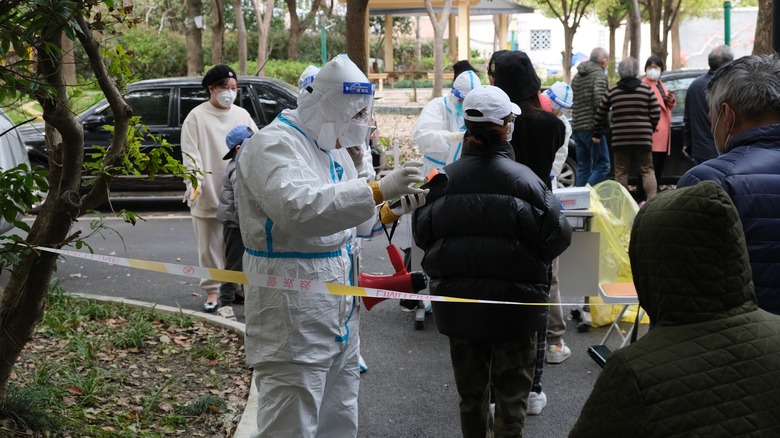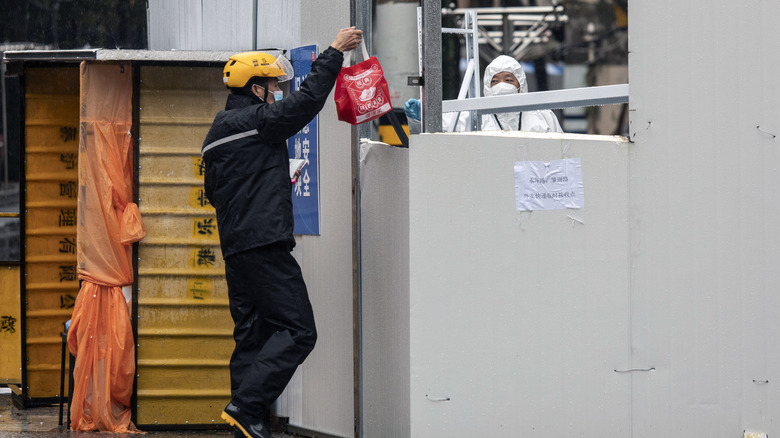Shanghai Promises Change For Locked-Down Residents Running Out Of Food
As China is battling a new outbreak of COVID-19, people in the country's largest city are less worried about the virus than they are about feeding their families as extreme lockdown measures implemented by the government are causing food shortages.
According to CNN, Shanghai began to notice a rise in cases of the omicron variant in late March and took steps to limit the spread, including shutting down public spaces and tourist attractions. However, cases continued to spread and Reuters reports the city of 28.5 million people — more than the entire state of Florida — began a two-stage lockdown on March 28. Initially, BBC reports, the lockdown was supposed to last only four days and each half of the city had its own measures, but an announcement April 4 extended the lockdown indefinitely throughout the city, confining nearly all residents to their homes.
Currently, only healthcare personnel, volunteers, delivery personnel, and a small number of other workers with special permission are allowed to leave their homes. Even ventures out to buy supplies or walk dogs are prohibited and residents are encouraged to not even walk in the halls or grounds of apartment complexes. Only mandated trips to get tested for COVID are permitted, and people who test positive — even if they don't display symptoms — are being sent to isolation centers.
Despite the measures, cases are still spreading (with France 24 reporting the city has seen over 20,000 new cases a day) and residents are growing impatient.
Shanghai's vice mayor acknowledges difficulties
The extreme lockdown measures, which Reuters says is part of the country's "zero tolerance" COVID policy, have created a food supply problem for residents. Shanghai newspaper Shine reports that since they are not allowed to leave their homes, residents of the Chinese business hub are reliant on food and medical supply delivery services from grocery stores, restaurants, and online retailers like Alibaba. Reuters notes, however, that the restrictions have limited the number of delivery drivers able to work in the city to about 11,000, making the necessary deliveries incredibly difficult to schedule. Residents report getting up extremely early to attempt to place grocery orders online but still finding stores sold out of essentials within minutes or delivery schedules fully booked, a problem seen as particularly troublesome for the elderly and less-tech savvy.
While the Shanghai government says the city has an adequate supply of rice, noodles and meat, BBC reports that there have been logistical breakdowns and delays in distributing them to residents.
Reuters reported that Shanghai's vice mayor Chen Tong has acknowledged the difficulties being faced by residents and said the city is exploring options to reopen some grocery stores, increase deliveries and delivery drivers, and combat online price gouging, though this has not quelled online outrage by residents being forced to ration food.

